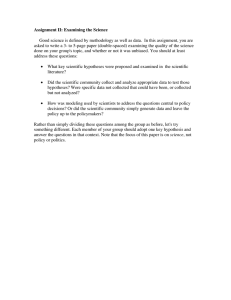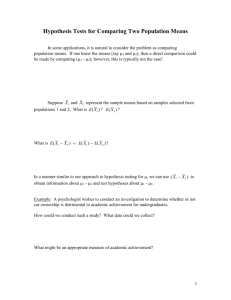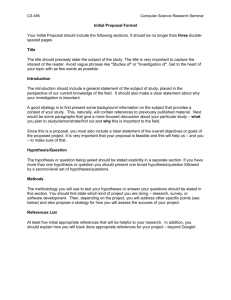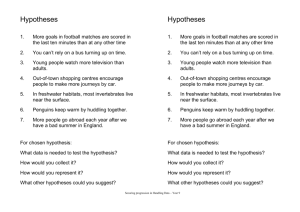Research Hypotheses & Program Evaluation: Definitions & Types
advertisement
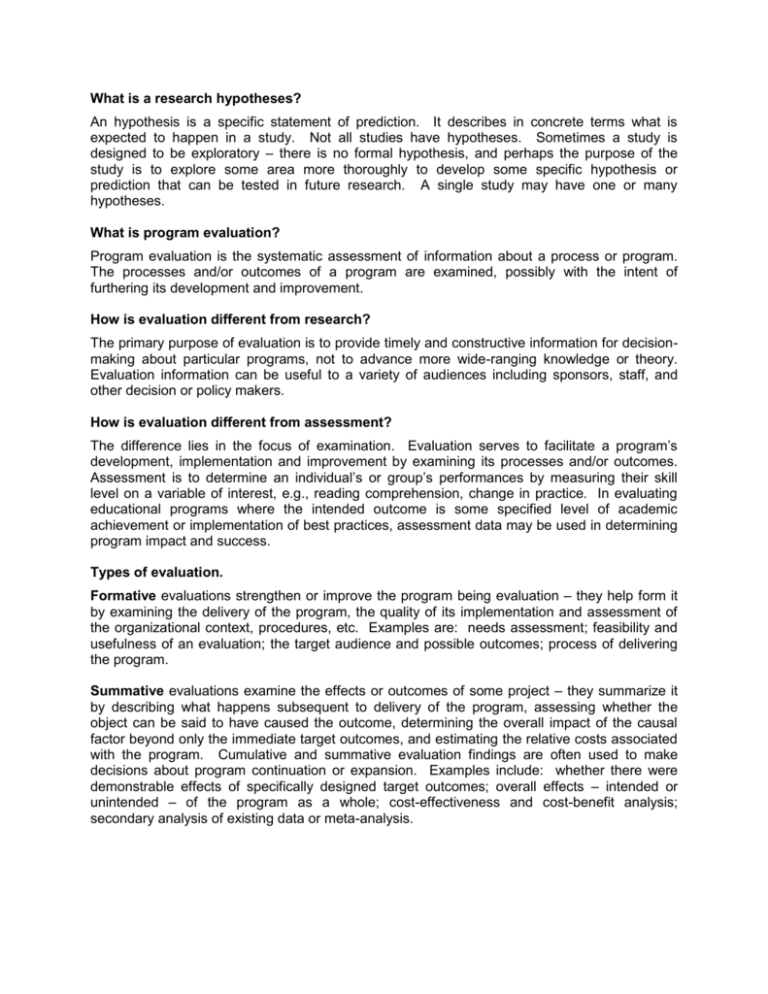
What is a research hypotheses? An hypothesis is a specific statement of prediction. It describes in concrete terms what is expected to happen in a study. Not all studies have hypotheses. Sometimes a study is designed to be exploratory – there is no formal hypothesis, and perhaps the purpose of the study is to explore some area more thoroughly to develop some specific hypothesis or prediction that can be tested in future research. A single study may have one or many hypotheses. What is program evaluation? Program evaluation is the systematic assessment of information about a process or program. The processes and/or outcomes of a program are examined, possibly with the intent of furthering its development and improvement. How is evaluation different from research? The primary purpose of evaluation is to provide timely and constructive information for decisionmaking about particular programs, not to advance more wide-ranging knowledge or theory. Evaluation information can be useful to a variety of audiences including sponsors, staff, and other decision or policy makers. How is evaluation different from assessment? The difference lies in the focus of examination. Evaluation serves to facilitate a program’s development, implementation and improvement by examining its processes and/or outcomes. Assessment is to determine an individual’s or group’s performances by measuring their skill level on a variable of interest, e.g., reading comprehension, change in practice. In evaluating educational programs where the intended outcome is some specified level of academic achievement or implementation of best practices, assessment data may be used in determining program impact and success. Types of evaluation. Formative evaluations strengthen or improve the program being evaluation – they help form it by examining the delivery of the program, the quality of its implementation and assessment of the organizational context, procedures, etc. Examples are: needs assessment; feasibility and usefulness of an evaluation; the target audience and possible outcomes; process of delivering the program. Summative evaluations examine the effects or outcomes of some project – they summarize it by describing what happens subsequent to delivery of the program, assessing whether the object can be said to have caused the outcome, determining the overall impact of the causal factor beyond only the immediate target outcomes, and estimating the relative costs associated with the program. Cumulative and summative evaluation findings are often used to make decisions about program continuation or expansion. Examples include: whether there were demonstrable effects of specifically designed target outcomes; overall effects – intended or unintended – of the program as a whole; cost-effectiveness and cost-benefit analysis; secondary analysis of existing data or meta-analysis.

